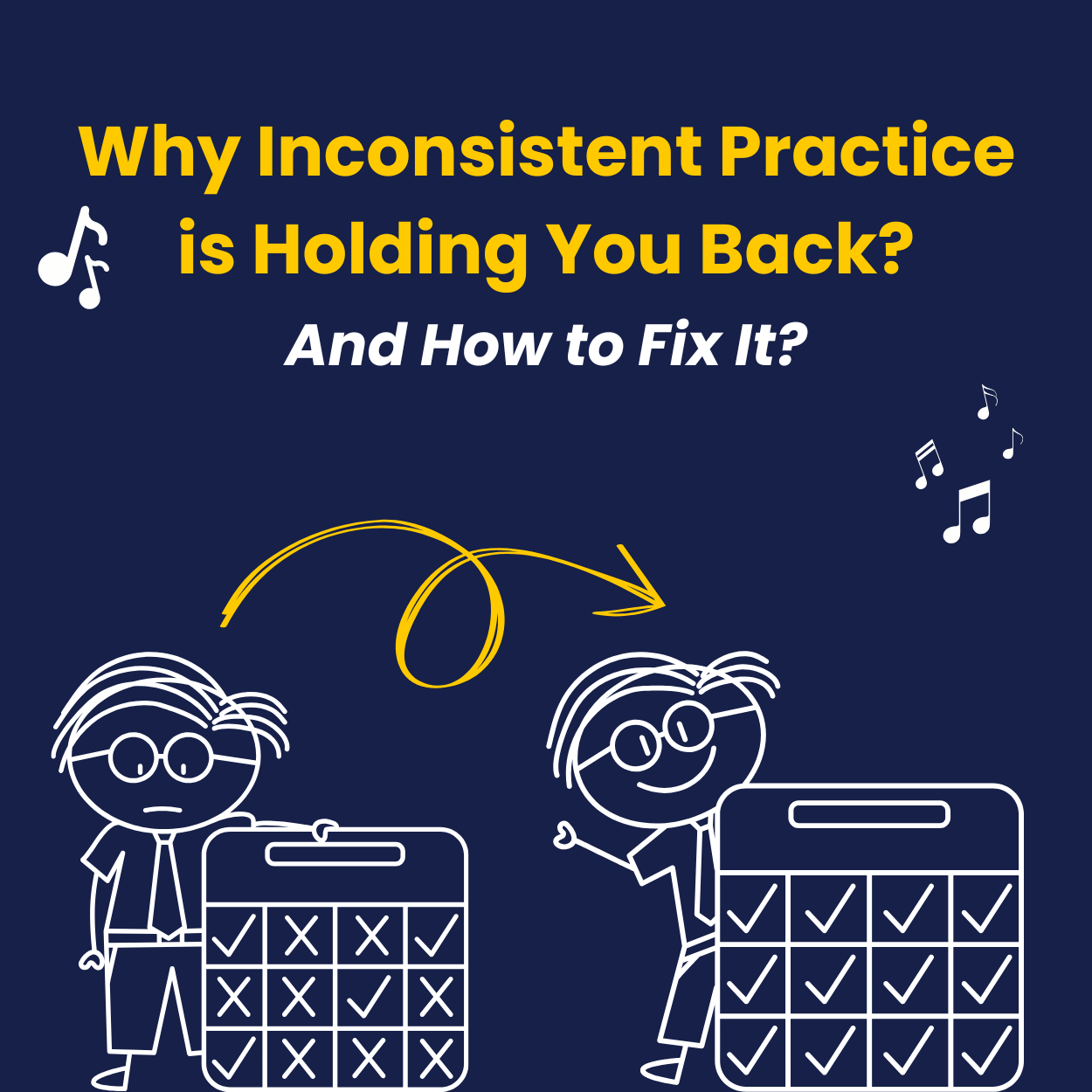
Table of Contents
Let’s be real! We all miss practice sometimes. One busy day turns into a week, and before you know it, your guitar gathers dust, your voice feels rusty, or your dance moves seem stiff. Then, when you finally sit down to practice, it feels like you’ve forgotten everything.
Frustrating, right? But here’s the truth: it’s not about talent or effort, it’s about consistency.
So, why does skipping practice slow you down? And more importantly, how can you stay on track without feeling overwhelmed? Let’s break it down.
Why Irregular Practice is Hurting Your Progress
Think of learning music or dance like learning a language. Imagine trying to learn French but only practicing once a week. Would you remember much? Probably not. Your brain and body need regular repetition to strengthen those skills.
Here’s what happens when you don’t practice consistently:
🔄 You keep forgetting and relearning—Wasting time catching up instead of moving forward.
🚫 You lose muscle memory—Your fingers struggle on the keyboard, your voice feels weak, or your footwork feels shaky.
😣 You feel demotivated—Because every session feels like starting over.
Sounds familiar? Don’t worry, fixing this is easier than you think!
1. Make Your Practice Routine Realistic
The biggest mistake? Trying to practice for an hour daily when your schedule doesn’t allow it. Instead, aim for small, achievable sessions.
✅ Start with just 10-15 minutes daily. Even this is better than skipping an entire week.
✅ Attach practice to an existing habit. Example: Vocal warm-ups while making tea, finger exercises while watching TV, or a quick dance drill before bed.
✅ Use reminders. Set phone alarms or add practice to your daily checklist.
At Spardha, we help students build consistent habits through structured lessons and flexible class timings—so practice easily fits into your life.

2. Track Your Progress (Even Small Wins Count!)
A major reason people quit? They don’t SEE their improvement. But even small progress is still progress!
💡 Keep a simple log: After every session, write down what you practiced.
🎥 Record yourself: Watch old videos—you’ll be surprised how much better you’ve gotten!
🏆 Set mini-goals: Instead of “I’ll master the guitar,” try “I’ll learn one new chord this week.”
Spardha’s progress-tracking tools help you measure improvements over time, so you stay motivated even on days when progress feels slow.
3. Turn Practice into a Fun Challenge
Let’s be honest—sometimes practice feels boring. But what if it felt like a game?
🎯 Try the “Don’t Break the Streak” Challenge—Mark an ‘X’ on a calendar for each day you practice, and see how long you can go without missing a day.
🎶 Make a playlist—Dedicate certain songs to warm-ups, drills, and full performances.
💃 Join a practice group—At Spardha, our virtual open mics and student communities keep learning social and exciting!
4. Find a Learning Style That Works for YOU
If you struggle with consistency, maybe the way you’re practicing isn’t engaging enough. Switch things up!
🎸 Bored of scales? Play a fun song instead.
🎤 Tired of the same vocal drills? Sing along with karaoke tracks.
💃 Repeating the same choreography? Try improvising to a new beat.
At Spardha, we use interactive lessons, interactive learning, and expert mentorship to keep things fresh and exciting.
Consistency > Perfection
Here’s the bottom line: Practicing for 15 minutes daily is better than 2 hours once a week. Small, regular efforts will always beat long, inconsistent sessions.
And if you need support? Spardha is here to help. Our flexible classes, expert mentors, and interactive learning tools make it easy to stay consistent—without feeling overwhelmed.
🚀 Ready to stay on track? Join Spardha and make music & dance a regular (and fun!) part of your life.
What’s YOUR biggest struggle with practice? Tell us in the comments! ⬇️
